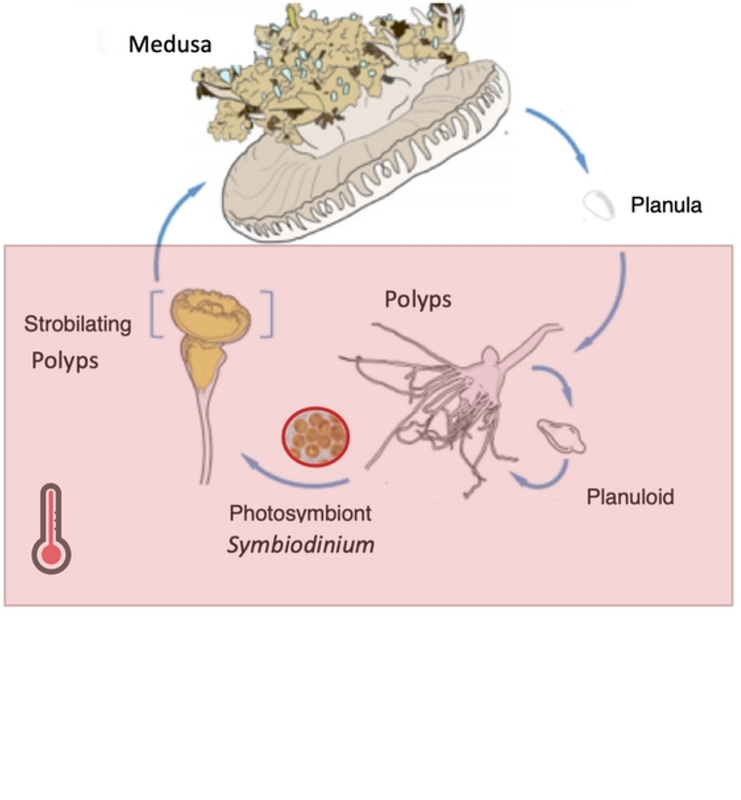Heat stress disrupts early development and photosymbiosis in Cassiopea jellyfish

Heat stress disrupts early development and photosymbiosis in Cassiopea jellyfish
Robinson, C.; Li, J.; Li, R.; Avila-Magana, V.
AbstractPhotosymbioses between Cnidarians and algae are widespread in marine ecosystems. The jellyfish Cassiopea-Symbiodinium symbiosis serves as a valuable model for studying host-symbiont interactions in photosymbiotic organisms. Despite its ecological similarity to coral symbiosis, the effects of rising sea surface temperatures on Cassiopea symbiosis, particularly during early developmental stages, remain unexplored. By exposing Symbiodinium cultures to heat stress and subsequently using these symbionts to colonize jellyfish polyps under ambient and elevated temperature conditions, we study the impact of heat on microbe-stimulating metamorphosis. We observed a significant reduction in chlorophyll concentration in heat-stressed Symbiodinium algae. Polyps colonized with these symbionts exhibited delayed metamorphosis under ambient conditions and failed to undergo metamorphosis under continued heat stress. Additionally, we found abnormal ephyra morphology and increased rates of asexual reproduction under heat stress. Our findings suggest that ocean warming may disrupt critical stages of Cassiopea metamorphosis and development by impairing symbiosis, ultimately threatening their population stability under warming marine environments.